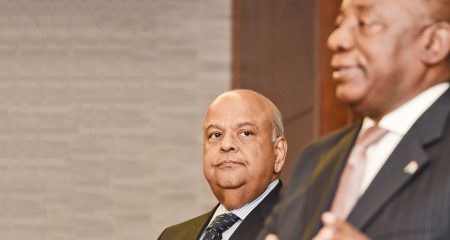
South African Airways administrators delivered a stark choice to those opposing their plan to fire the entire workforce and sell assets: it’s either that or full liquidation.
The state-owned carrier doesn’t have funds to continue trading nor pay salaries beyond the end of this month, and the government has so far refused requests for financial assistance, the team led by Les Matuson and Siviwe Dongwana said in a Thursday letter addressed to “all affected persons”.
The business-rescue practitioners sent a proposal to labour groups about retrenching all 4 700 staff on 17 April, and are asking for a response by Friday. If the unions agree, the administrators can draw up a new recovery plan. If not, they will proceed with the full liquidation process, according to the letter. Liquidation would complicate the payment of severance packages.
Their plan has so far been opposed by both labour groups and the department of public enterprises, which held a video meeting earlier this week to discuss an alternative way forward. While the government said the labour groups had agreed to job cuts and the eventual formation of a new airline, the two biggest unions denied this.
“There is no recognition that things need to be looked at differently,” said Ralph Mathekga, an analyst and author of books on South African politics. “This is the moment when SAA dies a natural death.”
State bailouts
SAA was cutting routes and consulting with staff about job cuts even before the coronavirus pandemic forced the grounding of all flights beyond a handful to repatriate foreign citizens. The carrier has been relying on state bailouts and debt guarantees for years, and in February the government set aside R16.4-billion over the next three years for SAA to repay creditors.
Preventing the spread of Covid-19 and shoring up the economy have since become greater priorities. President Cyril Ramaphosa unveiled a R500-billion economic package on Tuesday night, equivalent to about 10% of GDP.
A spokesman for public enterprises didn’t immediately respond to a request for comment. — Reported by Loni Prinsloo and Antony Sguazzin, (c) 2020 Bloomberg LP




